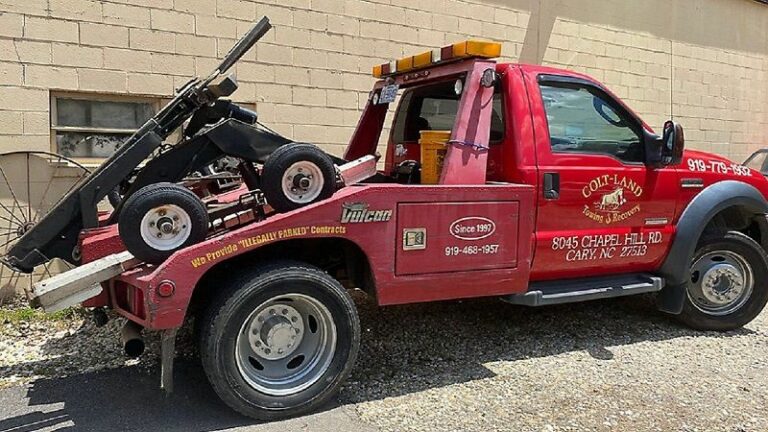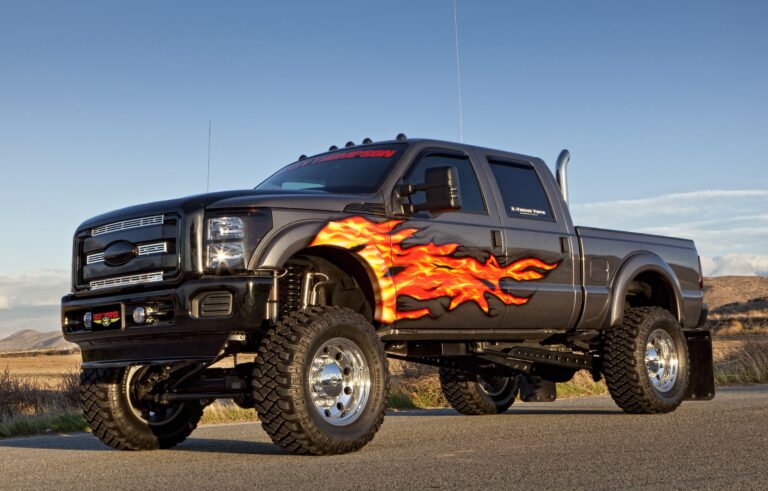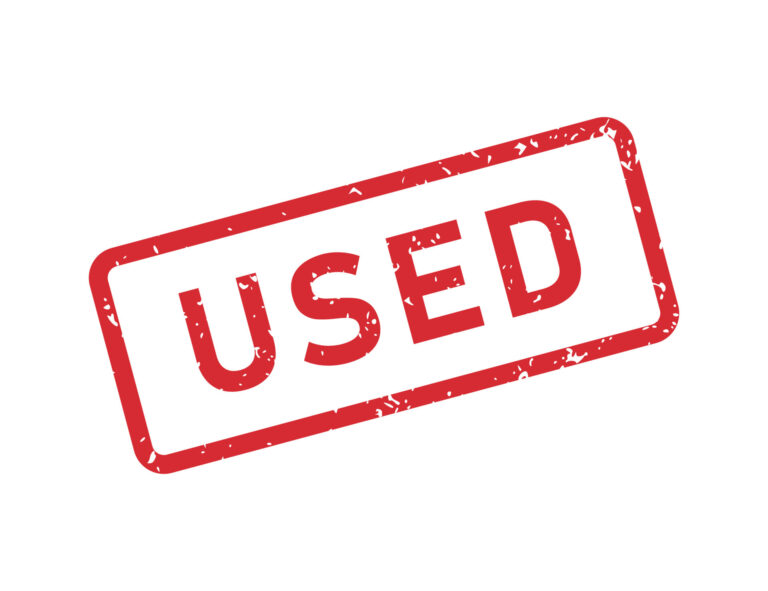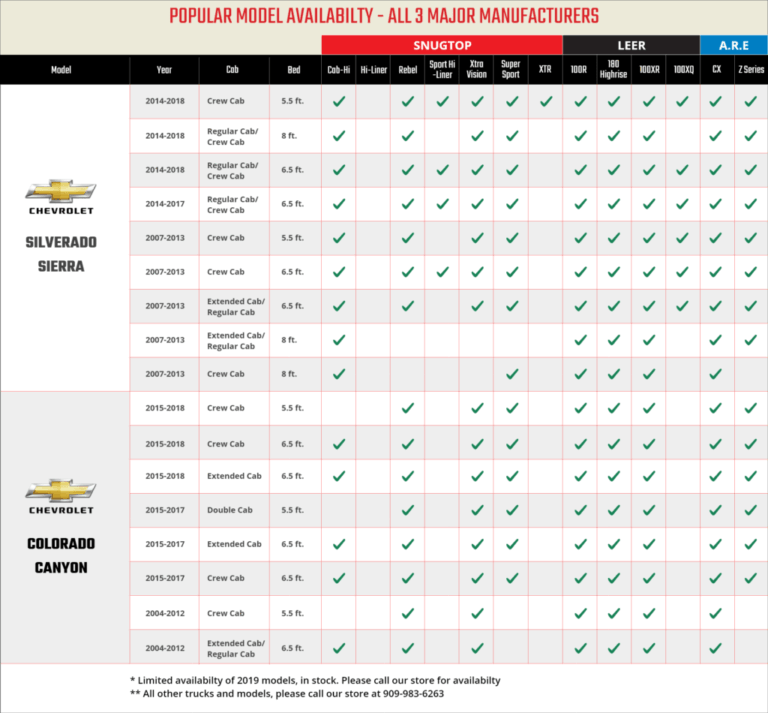Used Repo Trucks For Sale: Unlocking Value in Repossessed Vehicles
Used Repo Trucks For Sale: Unlocking Value in Repossessed Vehicles cars.truckstrend.com
In the vast and varied landscape of the automotive market, the term "used repo trucks for sale" often sparks curiosity. For the savvy buyer, it conjures images of significant savings and hidden gems. These aren’t just any used trucks; they are vehicles that have been repossessed by lenders – banks, credit unions, and financial institutions – due to a borrower’s failure to meet their loan obligations. Once repossessed, these assets are quickly put up for sale to recover the outstanding debt, creating a unique secondary market ripe with opportunities for individuals and businesses alike.
The allure of repo trucks lies primarily in their price point. Often sold at a substantial discount compared to their market value, they represent a compelling alternative to purchasing new or even traditionally used vehicles. However, navigating this market requires a discerning eye, a strategic approach, and a thorough understanding of the unique characteristics and potential pitfalls involved. This comprehensive guide will delve into every facet of buying used repo trucks, empowering you to make an informed and successful purchase.
Used Repo Trucks For Sale: Unlocking Value in Repossessed Vehicles
What Exactly Are Repo Trucks? Understanding the Process
At its core, a "repo truck" is a vehicle that has been taken back by a lender because the original owner defaulted on their loan payments. The repossession process is a legal means for lenders to recoup their losses. Once a vehicle is repossessed, it enters a recovery pipeline. Lenders typically aim to sell these assets as quickly as possible to minimize storage costs and further depreciation.
These trucks are then offered for sale through various channels. They can range from standard light-duty pickups used for personal transport or small businesses, to heavy-duty commercial trucks, utility vehicles, work vans, and even specialized equipment like dump trucks or tow trucks. The diversity is immense, reflecting the wide array of vehicles financed by lenders. The condition of these trucks can vary dramatically, from nearly new and well-maintained to those showing significant wear and tear, or even some level of neglect.
The Allure of Repo Trucks: Benefits and Advantages
The primary draw of repossessed trucks is undeniable: potential cost savings. But the benefits extend beyond just a lower price tag.
- Significant Cost Savings: This is the most compelling advantage. Repo trucks are often sold below their retail market value, sometimes significantly so, allowing buyers to acquire a more capable or newer model than their budget might otherwise permit. Lenders are motivated to sell quickly, not necessarily to maximize profit on individual units.
- Wide Variety and Selection: Because they come from various sources and circumstances, the market for repo trucks is incredibly diverse. You can find almost any make, model, year, and configuration imaginable, from popular Ford F-150s and Chevrolet Silverados to specialized commercial vehicles. This broad selection increases your chances of finding a truck that precisely meets your needs.
- Potential for High Value: Not all repossessions occur due to a vehicle’s poor condition or extensive mileage. Often, financial hardship, a change in circumstances, or job loss can lead to default, meaning the repossessed truck might be in excellent mechanical and cosmetic shape for its age, potentially offering exceptional value.
- Faster Acquisition: Unlike ordering a new truck or waiting for specific used inventory to arrive at a dealership, repo trucks are typically available for immediate purchase, often through auction or direct sale. This can be crucial for businesses needing to quickly expand their fleet or individuals needing a replacement vehicle.

Navigating the Market: Where to Find Used Repo Trucks
Finding repo trucks requires knowing where to look, as they aren’t typically advertised in the same way as standard used vehicles.
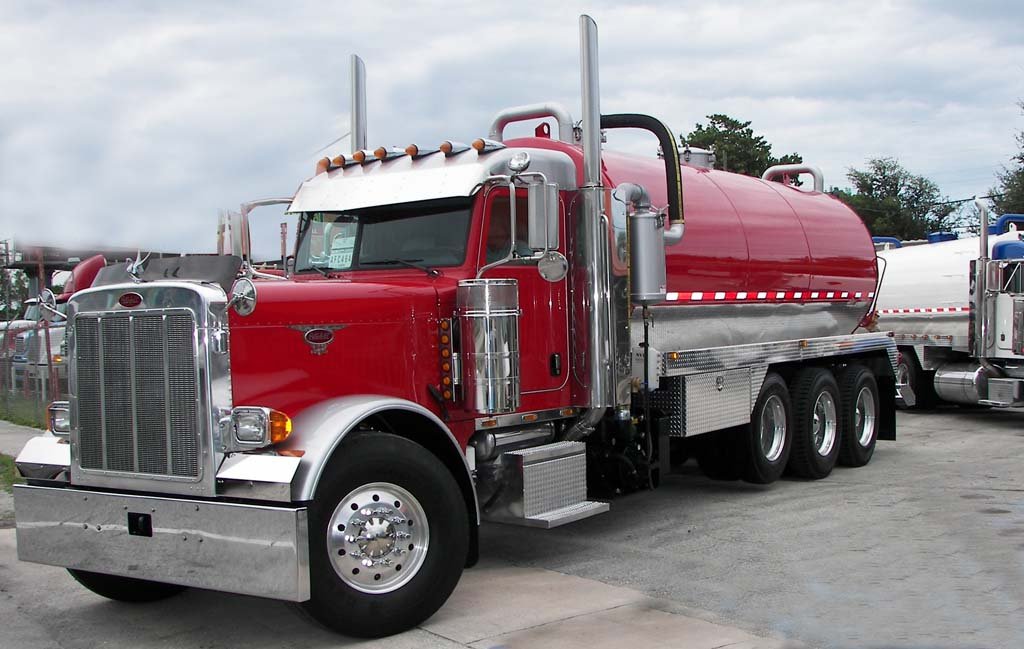
- Online Auction Platforms:
- Government Auctions: Websites like GSAAuctions.gov often list repossessed vehicles from federal agencies (e.g., IRS seizures, fleet upgrades).
- Specialized Repo/Salvage Auctions: Platforms like Copart.com and IAAI.com (Insurance Auto Auctions) list a vast inventory. While many vehicles here are salvage titles, clean-title repossessions are also common. You’ll need to register and understand their bidding process.
- Bank/Lender Direct Portals: Some larger banks and credit unions have dedicated "repossessed vehicles" sections on their websites where they list inventory directly for sale to the public.
- Dedicated Repo Websites: Several third-party websites aggregate listings from various lenders and auctions, making it easier to search.

- Local Auto Auctions: Many regional and local auto auctions hold regular sales that include repossessed vehicles from various financial institutions. Some are open to the public, while others are "dealer-only" (though you might be able to find a dealer to bid on your behalf for a fee).
- Credit Unions and Banks: Directly contacting local credit unions or smaller banks can sometimes yield information about their current repo inventory before it goes to public auction.
- Dealerships: Some used car dealerships specialize in buying repo vehicles at wholesale prices and then selling them on their lots, often after some reconditioning. While prices might be higher than direct from auction, these vehicles often come with more transparency and potential for limited warranties.
The Buying Process: A Step-by-Step Guide
Purchasing a repo truck can be a rewarding experience if approached systematically.
- Define Your Needs and Budget: Before you start looking, determine what type of truck you need (payload, towing capacity, cabin style), your maximum budget, and an allowance for potential repairs and reconditioning.
- Thorough Research and Due Diligence:
- Vehicle History Reports: This is non-negotiable. Obtain a CARFAX or AutoCheck report using the VIN. These reports can reveal crucial information about past accidents, flood damage, odometer tampering, service history, and previous ownership.
- Title Status: Understand the title. A "clean title" is ideal. Be wary of "salvage," "rebuilt," "flood," or "junk" titles, as these indicate significant prior damage and can make insurance or resale difficult.
- Online Listings & Photos: Scrutinize all available photos and descriptions. Look for signs of damage, wear, or missing parts.
- Crucial: The Pre-Purchase Inspection (PPI): If at all possible, arrange for a professional, independent mechanic to inspect the truck before purchase. This is especially vital for auction vehicles where test drives are often not allowed. A mechanic can identify hidden mechanical issues, fluid leaks, frame damage, or other problems that could lead to costly repairs.
- Understanding Auction Rules and Bidding Strategies: If buying through an auction, familiarize yourself with the specific rules, fees (buyer’s premium, documentation fees, storage fees), and payment terms. Set a maximum bid and stick to it to avoid overpaying in the heat of the moment.
- Financing and Payment: Most repo sales are "cash-only" or require immediate payment upon winning the bid. If you plan to finance, secure pre-approval from your bank or credit union before you start bidding. Be aware that some lenders might be hesitant to finance vehicles with certain title types or extensive damage.
- Transportation and Registration: Plan how you’ll transport the truck from the auction lot (towing might be necessary if it’s not roadworthy). Factor in registration, taxes, and insurance costs.
Important Considerations and Potential Challenges
While the benefits are attractive, it’s crucial to be aware of the inherent risks when buying repo trucks.
- "As-Is" Sales: The vast majority of repo trucks are sold "as-is, where-is," meaning there are no warranties, expressed or implied, from the seller. Once you buy it, any problems become your responsibility.
- Unknown History and Neglect: Unlike certified pre-owned vehicles, the full history of a repo truck can be opaque. The previous owner may have neglected maintenance, abused the vehicle, or even intentionally damaged it before repossession.
- Limited or No Test Drives: At auctions, you typically cannot test drive the vehicle. You’re often limited to a visual inspection and starting the engine (if it runs). This makes the pre-purchase inspection even more critical.
- Cosmetic and Mechanical Issues: Expect some level of wear and tear. Dents, scratches, interior damage, or even more significant mechanical issues are not uncommon. Factor potential repair costs into your budget.
- Logistical Challenges: Picking up the vehicle from an auction site often has strict deadlines, and storage fees can quickly accumulate if you delay.
Tips for a Successful Repo Truck Purchase
To maximize your chances of a positive experience:
- Do Your Homework: Research specific models, common issues, and market values for similar trucks.
- Set a Firm Budget: Include the purchase price, auction fees, potential repairs, transportation, and registration. Do not exceed it.
- Always Get a PPI: This cannot be stressed enough. A few hundred dollars spent on an inspection can save you thousands in unexpected repairs.
- Verify VIN and History: Cross-reference the VIN on the vehicle with the documentation and history reports.
- Be Patient: The perfect truck at the perfect price might not appear immediately. Don’t rush into a purchase.
- Factor in Reconditioning: Assume you’ll need to invest some money in cleaning, minor repairs, or deferred maintenance.
- Understand Auction Dynamics: Don’t get caught up in bidding wars. Stick to your maximum.
Price Table: Estimated Ranges for Used Repo Trucks
It’s crucial to understand that prices for used repo trucks fluctuate wildly based on make, model, year, mileage, condition, location, and the specific auction or seller. The table below provides estimated ranges and factors influencing them, rather than definitive prices. These figures are for trucks with clean titles, not salvage.
| Truck Type | Typical Price Range (Repo) | Key Factors Affecting Price | Example Models (Repo) |
|---|---|---|---|
| Light-Duty Pickup | $5,000 – $30,000+ | Age, mileage, 2WD/4WD, engine type (V6/V8), trim level, condition | Ford F-150, Chevy Silverado 1500, Ram 1500, Toyota Tacoma |
| Heavy-Duty Pickup | $10,000 – $45,000+ | Age, mileage, engine (diesel often higher), 2500/3500 series, condition | Ford F-250/350, Chevy Silverado 2500/3500 HD, Ram 2500/3500 |
| Commercial Van | $6,000 – $25,000+ | Age, mileage, cargo vs. passenger, interior upfit, condition | Ford Transit, Mercedes-Benz Sprinter, Ram ProMaster, Chevy Express |
| Utility/Work Truck | $8,000 – $35,000+ | Specialty equipment (lift gate, service body), condition, mileage | Ford F-Series with utility body, Chevy Silverado with plows |
| Medium-Duty Truck | $15,000 – $60,000+ | GVWR, engine, transmission, specific application (dump, box, flatbed), mileage, condition | Isuzu NPR, Ford F-650, Freightliner M2 |
| Heavy-Duty Truck | $25,000 – $100,000+ | Class 8, engine (Cummins, Detroit), transmission, sleeper/day cab, mileage, condition | Freightliner Cascadia, Kenworth T680, Peterbilt 379 |
Note: Prices can vary significantly. A newer, low-mileage, well-maintained repo truck will command a much higher price than an older, high-mileage, or visibly damaged one. Always factor in additional costs like auction fees, taxes, and potential repairs.
Frequently Asked Questions (FAQ) About Used Repo Trucks For Sale
Q1: Are repo trucks reliable?
A1: Reliability varies greatly. Some repo trucks are nearly new and reliable, while others may have been neglected or even intentionally damaged. A thorough pre-purchase inspection is crucial to assess reliability.
Q2: Can I test drive a repo truck before buying?
A2: Generally, no, especially at auctions. You might be able to start the engine, but driving is usually prohibited. This is why a professional inspection is so vital.
Q3: Do repo trucks come with a warranty?
A3: Almost never. The vast majority of repo trucks are sold "as-is, where-is," meaning without any warranty from the seller or lender.
Q4: How do I know if a repo truck is a good deal?
A4: A good deal means the truck’s overall cost (purchase price + fees + estimated repairs) is significantly less than what you’d pay for a comparable truck on the open market, and it meets your needs. Always compare with similar models on sites like Kelley Blue Book or Edmunds.
Q5: What kind of title do repo trucks have?
A5: Most repo trucks have a "clean title," indicating no major damage history. However, some might have "salvage," "rebuilt," or "flood" titles, which indicate significant prior damage. Always check the title status before bidding.
Q6: Can I finance a repo truck?
A6: Yes, but it can be more challenging than financing a vehicle from a dealership. You’ll likely need pre-approval from a bank or credit union, and they may have stricter requirements, especially for older or higher-mileage vehicles, or those with non-clean titles.
Q7: What’s the difference between a repo auction and a salvage auction?
A7: While some platforms (like Copart, IAAI) list both, a "repo auction" specifically deals with repossessed vehicles, often with clean titles. A "salvage auction" primarily sells vehicles deemed total losses by insurance companies due to accidents, flood, fire, etc., and typically come with salvage titles.
Conclusion
Used repo trucks for sale represent a compelling segment of the pre-owned vehicle market, offering the potential for significant savings and access to a wide variety of vehicles. While the allure of a low price is strong, success in this arena hinges on meticulous research, a cautious approach, and a commitment to due diligence. By understanding where to find these trucks, how to evaluate them, and what challenges to anticipate, savvy buyers can unlock substantial value, acquiring a robust and reliable truck that perfectly fits their needs and budget. With a strategic mindset, your next great truck might just be a repossessed one.

